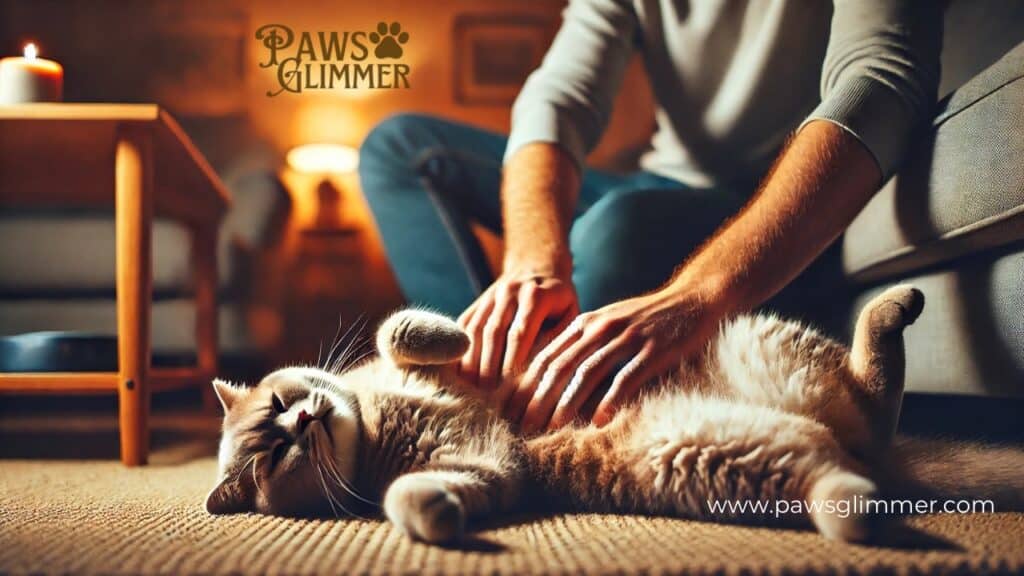Have you ever found yourself wondering, “Why Does My Cat Like Belly Rubs?” 🤔 You’re not alone in this feline conundrum! 🐱 As cat owners, we’re often puzzled by our furry friends’ peculiar habits, and their love (or hatred) for tummy scratches is no exception. 😸
In this guide, we’ll dive deep into the world of cat behavior 🐾 and explore the fascinating reasons behind your kitty’s belly rub preferences. 🧡 Discover the secrets to understanding your cat’s quirks and enjoy bonding time with your feline companion! 🌟
The Feline Belly Rub Conundrum Unraveling the Mystery
Cats are known for their enigmatic personalities, and their attitude towards belly scratching is no different. Some felines seem to relish in abdominal petting, while others treat it as a declaration of war. To understand this behavior, we need to peel back the layers of feline psychology and examine the complex interplay between instinct and domestication.
Check Out About Understanding Cats: Sensing Death In Humans
The Anatomy of Trust: Understanding Your Cat’s Vulnerable Spots
The Significance of a Cat’s Belly in Feline Body Language
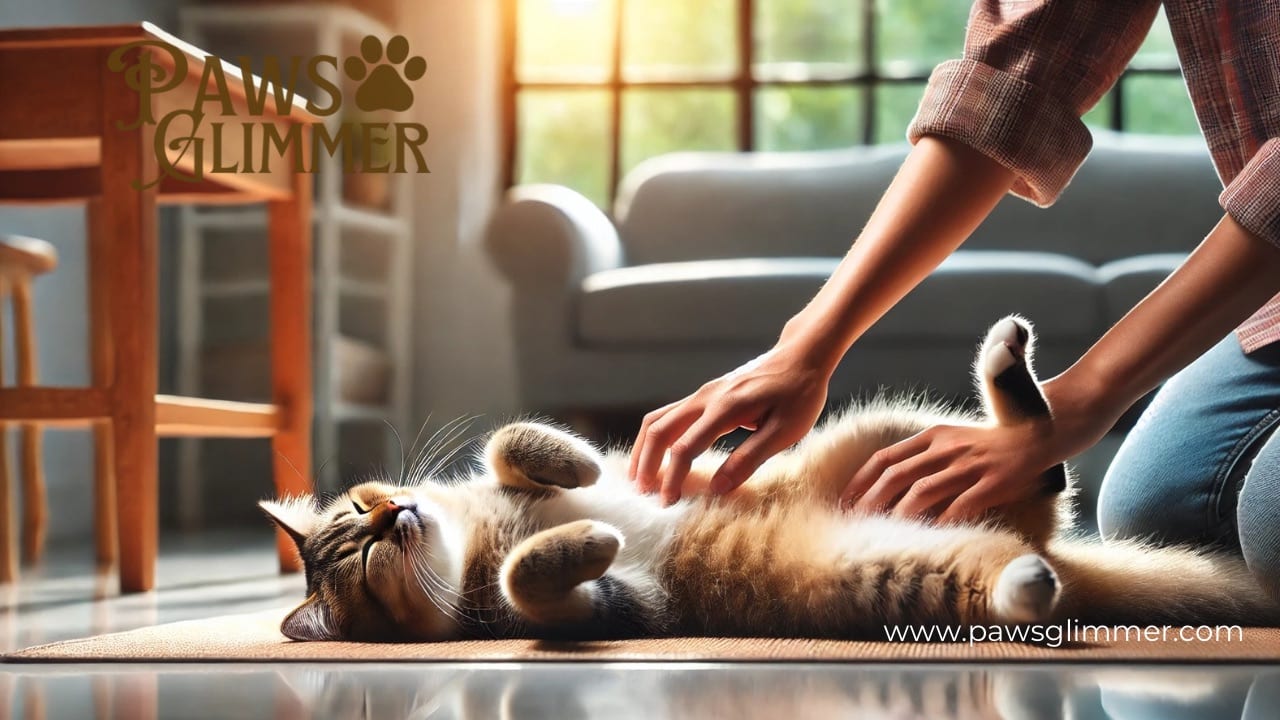
Your cat’s belly is more than just a soft, fluffy expanse of fur. It’s a highly sensitive area that plays a crucial role in feline conduct and communication. In the wild, cats protect their underbellies at all costs, as this region houses vital organs and is particularly vulnerable to attack.
When your feline friend exposes their belly to you, it’s often a sign of ultimate trust. This trust indicator shows that your cat feels safe enough in your presence to reveal their most delicate spots. However, this display doesn’t always translate to an invitation for stomach stroking.
Evolutionary Instincts vs. Domesticated Behavior
While domestication has significantly influenced cat character traits, their wild instincts still play a role in shaping their behavior. The conflict between these instincts and learned behaviors can sometimes lead to confusing signals when it comes to belly rubs.
| Wild Instinct | Domesticated Behavior |
| Protect vulnerable areas | Display trust by exposing belly |
| Attack when threatened | Tolerate or enjoy human touch |
| Maintain personal space | Seek affection and bonding |
This table illustrates the ongoing balance between a cat’s innate nature and their adapted behaviors in human households.
Decoding the Belly Rub: 5 Reasons Your Cat Might Enjoy It
Now, let’s explore the potential reasons behind your cat’s apparent enjoyment of belly rubs:
- The Ultimate Sign of Trust and Bonding
- When your cat allows underside caressing, it’s a powerful affection marker.
- This behavior strengthens the human-feline bond.
- Sensory Pleasure: Unique Nerve Endings in the Belly Area
- A cat’s belly is rich in nerve endings, making it an especially pleasurable spot for some felines.
- Gentle stroking can trigger a positive sensory experience.
- Temperature Regulation and Comfort
- Belly rubs may help your cat regulate their body temperature.
- The soothing motion can induce a state of relaxation.
- Scent Marking and Territorial Behavior
- By allowing you to touch their belly, your cat might be marking you with their scent.
- This behavior reinforces your place in their social group.
- Mimicking Kitten-Mother Interactions
- Belly rubs may remind adult cats of the comforting grooming they received as kittens.
- This can evoke feelings of security and contentment.
“Understanding your cat’s individual preferences is key to building a strong bond. Some cats may adore belly rubs, while others prefer alternative forms of affection.” – Dr. Feline Whiskers, renowned cat behaviorist
Why Does My Cat Meow After Pooping?
The Fine Line: When Belly Rubs Go Wrong
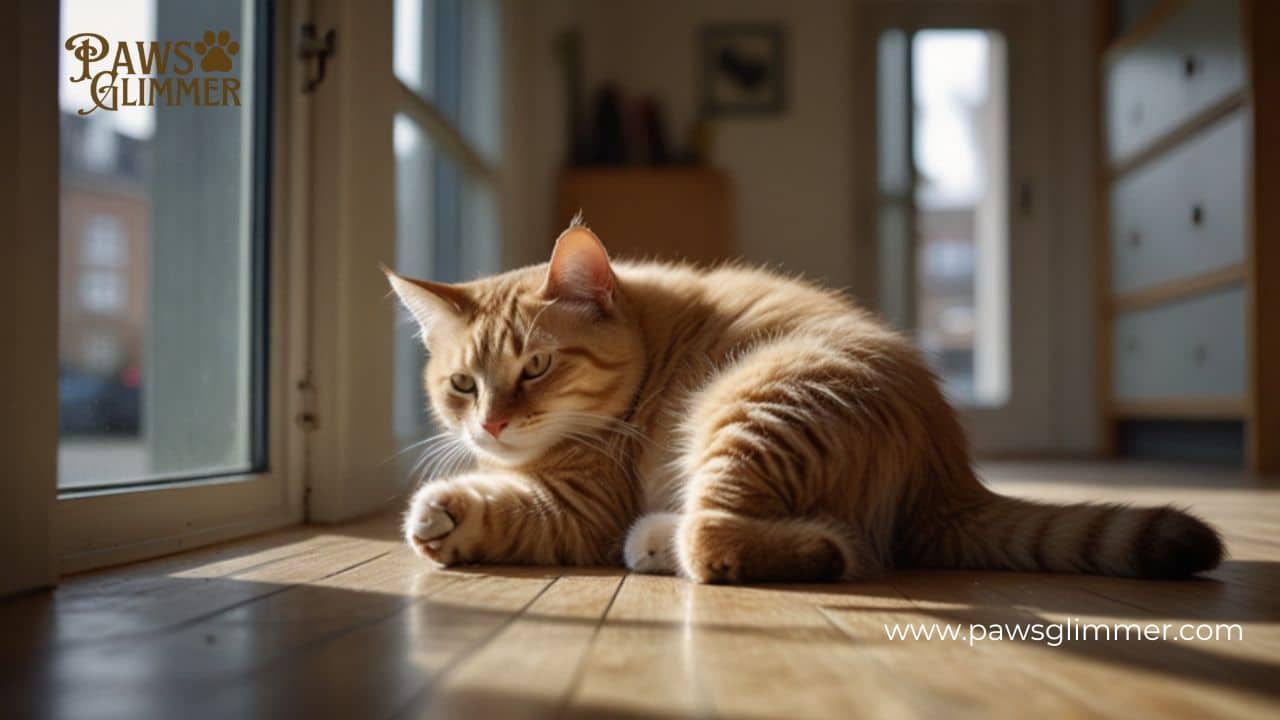
While some cats revel in abdominal petting, others may react negatively. It’s crucial to recognize the signs of discomfort or overstimulation:
- Dilated pupils
- Tail swishing or thumping
- Skin twitching
- Ears flattening
- Sudden vocalization or hissing
If you notice these signs, it’s best to cease the belly rub immediately to avoid triggering your cat’s defensive instincts.
The Overstimulation Trap: Why Some Cats Suddenly “Attack”
Even cats that initially enjoy belly rubs may suddenly seem to turn on their human companions. This behavior, often referred to as “petting-induced aggression,” is typically a result of overstimulation. The sensitive areas on a cat’s belly can become overwhelmed with sensation, leading to a sudden shift in mood.
To avoid this, pay close attention to your cat’s body language and respect their limits. Short, gentle belly scratching sessions are often more appreciated than prolonged encounters.
Do Praying Mantis Attack Humans?
Beyond the Belly: Alternative Ways to Bond with Your Cat
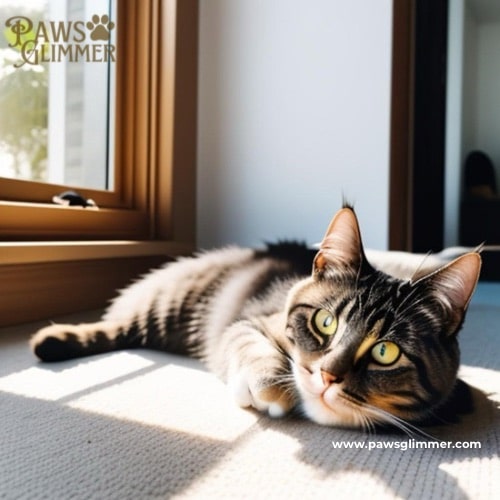
Mastering the art of the belly rub can enhance your bond with your feline friend. Here are some expert tips:
- Approach with Care
- Always let your cat initiate contact
- Offer your hand for them to sniff before touching
- Find the Sweet Spot
- Start with gentle strokes on the head or chin
- Gradually move to the belly if your cat seems receptive
- Duration and Pressure
- Keep initial sessions short (5-10 seconds)
- Use light, gentle strokes rather than vigorous rubbing
- Read Your Cat’s Signals
- Stop immediately if you notice signs of discomfort
- Respect your cat’s preferences – not all enjoy belly rubs
Special Considerations: Belly Rubs for Different Cats
Kittens vs. Adult Cats: How Preferences May Change

Kittens often have different touchy zones compared to adult cats. Their playful nature may make them more receptive to belly rubs, but be gentle as their bodies are still developing.
Why Mom Dogs Might Eat Their Puppies
The Pregnant Cat: To Rub or Not to Rub?
Pregnant cats require special consideration when it comes to belly rubs. While some expecting felines may enjoy gentle stomach stroking, others might find it uncomfortable. Always consult with a veterinarian before attempting to rub a pregnant cat’s belly, as improper handling could potentially harm the developing kittens.
Senior Cats: Adjusting Touch for Comfort
Older cats may have more sensitive parts due to arthritis or other age-related conditions. Gentle, slow strokes may be more appreciated than vigorous rubbing. Always be mindful of your senior cat’s comfort level and adjust your approach accordingly.
Beyond the Belly: Alternative Ways to Bond with Your Cat
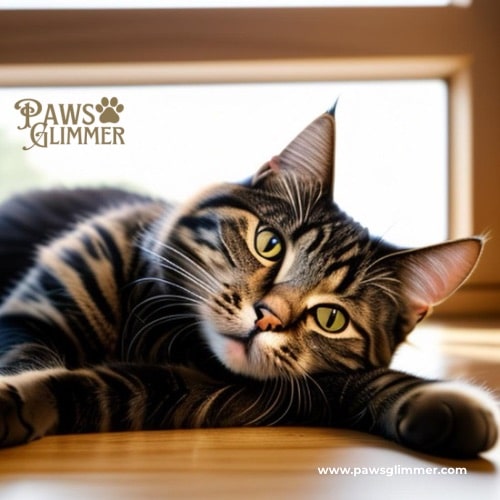
For cats that don’t enjoy belly rubs, there are plenty of other ways to strengthen your bond:
- Head scratches and chin rubs: Most cats universally enjoy these forms of affection
- Interactive play: Engage your cat’s hunting instincts with toys that mimic prey
- Quality time: Sometimes, simply being present and attentive is enough for your cat
The Science Behind the Purr: How Belly Rubs Affect Your Cat’s Brain
Belly rubs can have a profound effect on your cat’s neurochemistry:
- Release of oxytocin (the “love hormone”)
- Production of endorphins, natural pain relievers
- Reduction in cortisol levels, lowering stress
These biological responses can contribute to your cat’s overall well-being and strengthen your bond.
When to Worry: Medical Issues That Might Affect Belly Sensitivity
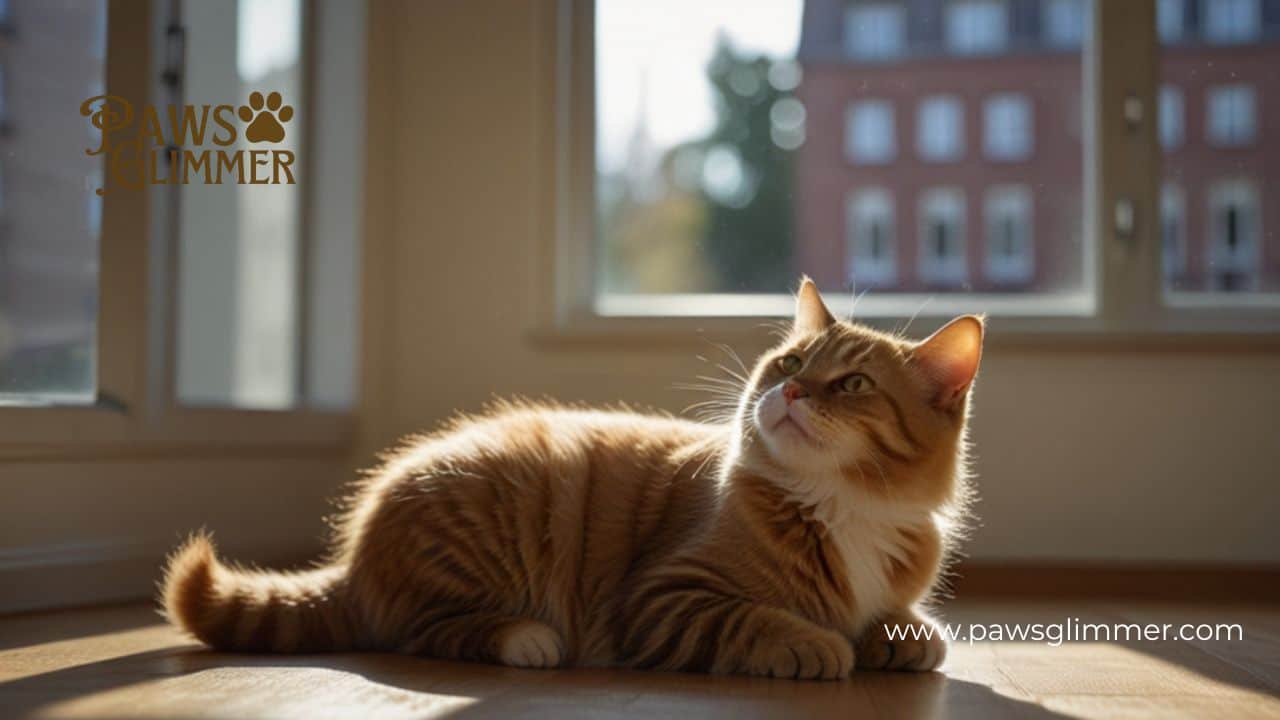
While most cats’ belly rub preferences are simply a matter of individual temperament, sometimes medical issues can affect their sensitivity to touch. Be aware of these potential concerns:
- Abdominal pain or discomfort
- Skin irritations or allergies
- Internal parasites
- Digestive issues
If you notice a sudden change in your cat’s tolerance for belly rubs or any signs of discomfort, consult with your veterinarian promptly.
Conclusion: Embracing the Unique Bond with Your Feline Friend
Understanding why your cat likes (or dislikes) belly rubs is just one piece of the complex puzzle that is feline behavior. By respecting your cat’s individual preferences and reading their body language, you can build a stronger, more trusting relationship with your furry friend.
Remember, every cat is unique, and what works for one may not work for another. The key is to observe, learn, and adapt to your cat’s specific needs and feline inclinations. Whether your cat is a belly rub enthusiast or prefers other forms of affection, cherish the special bond you share with your feline companion.
By taking the time to understand your cat’s behavior, you’re not just satisfying your curiosity – you’re strengthening the human-feline bond that makes cat ownership such a rewarding experience. So the next time your cat rolls over and exposes that fluffy belly, you’ll have a better idea of whether they’re inviting a rub or simply saying, “I trust you, human!”

Raymond Dandan is a seasoned pet blogger with a passion for feline care and behavior. With years of experience and a deep love for cats, Raymond brings expert insights and practical tips to “PawsGlimmer.” His engaging writing and thorough research help cat owners provide the best for their furry friends, making him a trusted voice in the pet community.

